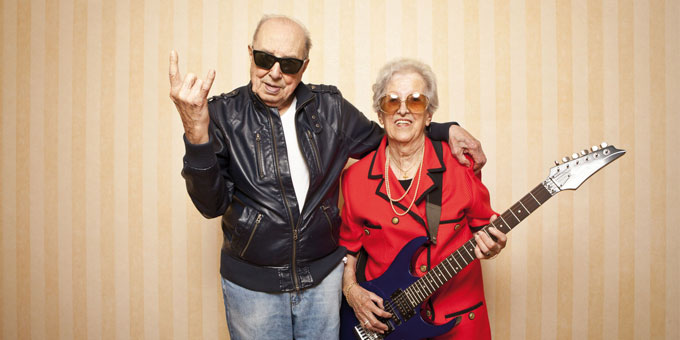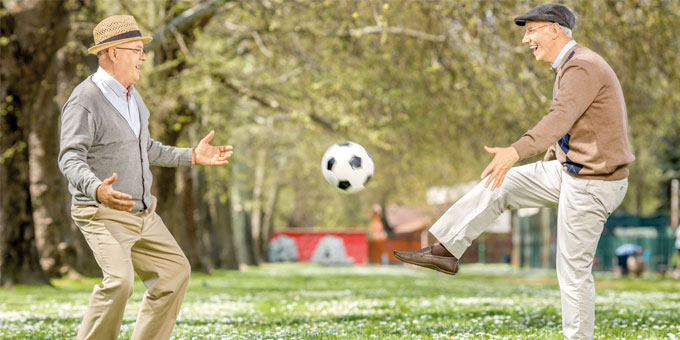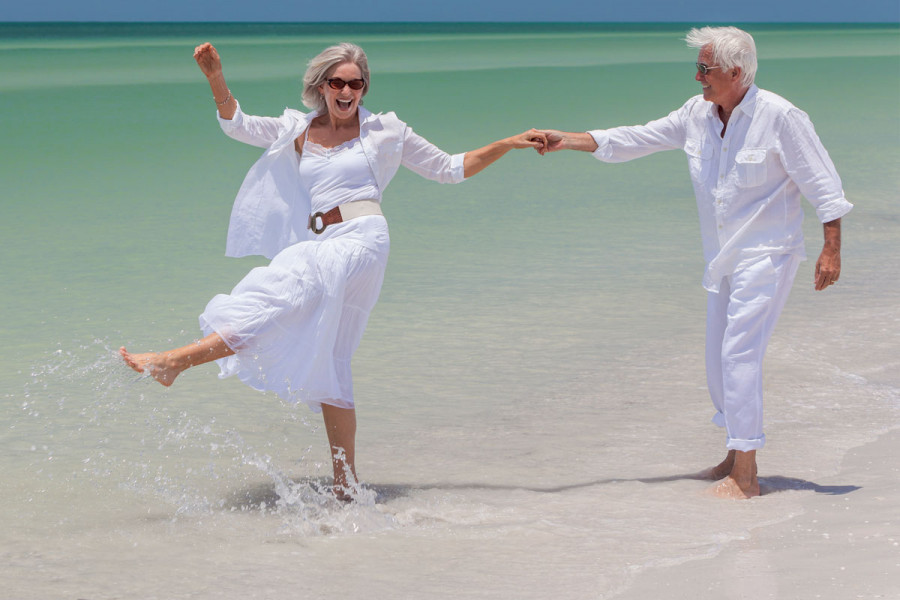I want to receive new articles by email
Aging Gracefully
By Jerry Brownstein
For most people “aging” is synonymous with aches, pains, forgetfulness, loneliness, and ultimately death. Growing older is inevitable, but research actually shows that how you think about it can make a big difference in how gracefully you age. Holding on to negative stereotypes about aging can have a significant impact on your quality of life, and prevent you from living to your full capacity. On the other hand, having a positive outlook can help you to look, feel and act younger. A compilation of recent studies that were designed to test the effects of positive attitudes toward aging have all had similar results. Over and over they found that people who hold more positive views about aging are generally stronger, more flexible, do better on memory tests and actually live longer.

The landmark study of this phenomenon took place back in 1981 when eight men in their 70s were brought to a converted monastery in New Hampshire US. They were all reasonably healthy, but aging had left its mark. A few of them were arthritically stooped, while others walked with canes. The men had no idea what to expect, but as they came through the front door they entered what must have felt like a time warp… taking them back over 20 years to the 1950s. Songs of those days were playing on the radio, and a black and white TV was showing the popular shows of the ‘50s. Everything inside, including the books on the shelves and the magazines lying around, were designed to make one think and feel that it was 1959.
This was to be the men’s home for five days as they participated in a radical experiment created by a young psychology professor named Ellen Langer.
Their days were filled with discussions about the “current” events of the day… but those were the events of 1959. Sports, politics, music and movies from that time were all talked about in the present tense. There were no mirrors, no modern-day clothing and no photos except portraits of the men when they were much younger. Everything was staged to create the illusion that they had returned to the way they were 22 years earlier. Before arriving the men had been given a variety tests to determine the biomarkers of their age: grip strength, dexterity, flexibility, hearing, vision, memory and cognition. At the end of the five days they were tested again, and they had become more flexible, showed greater manual dexterity, better posture and, perhaps most improbable of all, their sight had improved. Independent judges observed them before and after, and said that they looked much younger at the end of the five days. As they waited for the bus to go home, these heretofore creaky seniors engaged in a spontaneous and energetic football game. According to Professor Langer, “The results were almost too good - it was as if the men had a miraculous cure at Lourdes. They had put their minds in an earlier time, and their bodies went along for the ride.”
 We have all heard the cliché that ‘age is only a number’, but studies like this are proving that turning back the clock psychologically can actually turn it back physically.
We have all heard the cliché that ‘age is only a number’, but studies like this are proving that turning back the clock psychologically can actually turn it back physically. This does not mean that we do not age, but rather that we can remain younger in body and mind for far longer than is conventionally thought. Combining a healthy lifestyle with positive thoughts about aging makes it very possible for a person over 60 to be more fit than the average 30 year old. Your age in years measures how many times you have travelled around the sun, but your real biological age is dictated by your choices, habits… and attitude. Taking care of your physical body is of course an essential part of the process. This includes healthy eating, regular exercise, reduction of stress and getting enough quality sleep. All of these things are necessary for a healthy body, but it is just as important to have a mental attitude that associates aging with positive stereotypes.
Our minds are filled with negative preconceptions about aging – preconceptions that tell us what to expect from ourselves and other people at certain ages. Dr Langer’s 35 years of experiments have shown that changing these programmed attitudes can reverse many of the physical declines of old age. Her famous early experiment accomplished this by putting the men in an environment that reminded them of a time when they were younger. This created a youthful mental attitude that sent messages to their bodies which made them feel and act younger. In her book, “Counterclockwise: Mindful Health and the Power of Possibility”, she explains how her subsequent studies have shown that there are numerous ways to reprogram our minds so that we can age gracefully – without having to go into a time warp. We just need to be more conscious about what we think, say and do.

One of the most important things one can do is to stop using phrases like ‘for my age’, as in: “I am pretty fit for my age.” or “What do you expect from somebody my age.” etc. etc… Phrases like this reinforce our programmed prejudice that aging makes you less than you used to be in every way. Another thing to watch out for is dwelling on the past. It’s OK to occasionally reminisce about something fun that happened in the past, but many older people spend a lot of time moaning about the present and/or talking about the ‘good old days’. Perhaps the best general rule is that if you find yourself acting like the stereotype of an old person… stop it. One example is that old people often make odd sounds of pain and exasperation like “oof!”, “ach!” etc. It is not physically necessary to make these noises, but we are trained to do it because we expect old people to sound like that. The simple solution: when you hear yourself starting to make sounds like that… stop it!

Becoming more aware of what we say and do allows us to avoid falling into the trap of acting out the stereotypes of an old person. Professor Jeffrey Rediger of the Harvard Medical School sums it up this way: “Dr Langer has opened the doors for us to understand that aging gracefully with health and strength is rooted in our minds, and in the ways that we experience ourselves in the world. We can change our programmed images of what aging looks and feels like, by creating new positive images that will be mirrored and manifested in our physical and mental behavior.” •
“You don’t stop playing when you get old…
you get old when you stop playing.”










